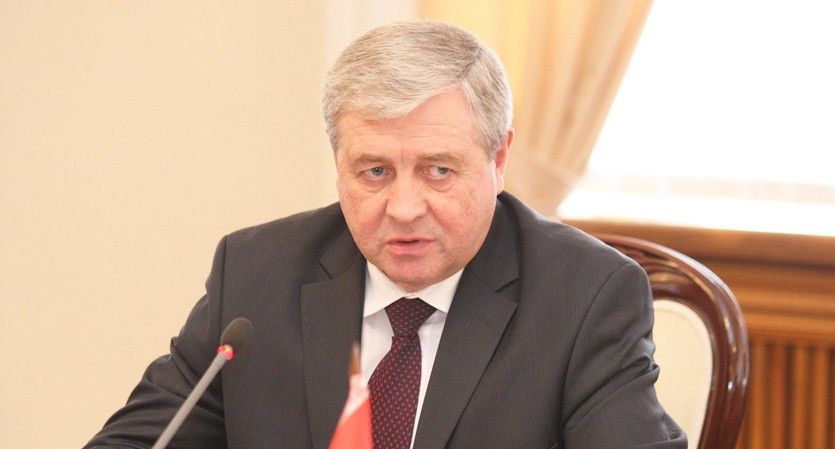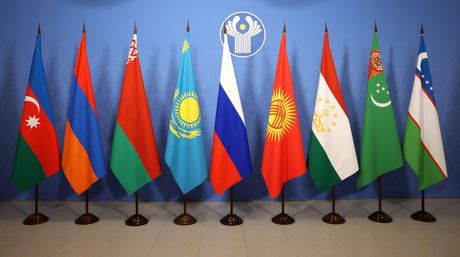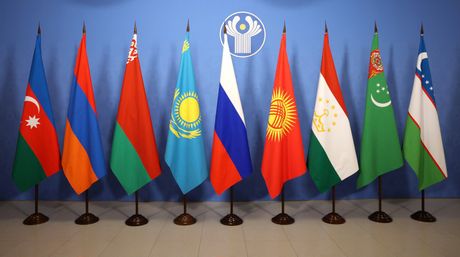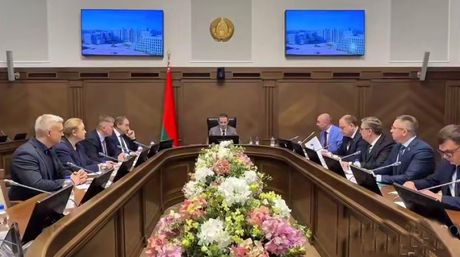Western sanctions against Belarus described as economic warfare
16:29, 12 July

There is a feeling that the collective West has again unleashed a war against Belarus and Russia, this time an economic one, Belarusian Ambassador to Russia Vladimir Semashko said in an interview with the RIA Novosti news agency, BelTA has learned.
- Share on Facebook
- Share on VK
- Share on Twitter
The Belarusian president described the sanctions imposed by Western countries as lawlessness and blackmail on the international scale, in fact, a modern punitive operation, the diplomat recalled. "What makes the situation even more cynical is that the European Union imposed sanctions on 22 June, the day of to the 80th anniversary of the beginning of the Great Patriotic War, which is a tragic date for us," the ambassador said. “It is important to note that, as the head of state said, the sanctions have been imposed not only against us. Even larger and more sensitive sanctions have been imposed against the Russian Federation. You know, there is a feeling that we are at war again. This time an economic one."
Ambassador Vladimir Semashko noted that there is not exaggerating the impact of sanctions, but, on the other hand, they should not be treated lightly. "They are definitely damaging the economy," he said. “Now it is the job of the government to level their harm, to counter them and maintain the positive dynamics of economic development. Belarus has lived under sanctions pressure for many years, so the country has gained some experience in dealing with them. It is also very important that the rest of the world is open to us. We can tap into new markets, though is not as easy as it seems. We see significant reserves in trade with Russia, huge potential in Asia, primarily in China, Vietnam, India and Pakistan, and also in Africa, Latin America, the Persian Gulf countries and the Middle East. These are dynamically growing economies, solvent markets. We just need to learn to work and compete on them. The president instructed the government to work out a strategy to minimize the negative impact of the sanctions and maintain the current economic growth rate, retain jobs and shield Belarusian households and their income,” Vladimir Semashko said.
The ambassador informed that the government developed a set of measures to offset the impact of the Western sanctions on the economy. “We have analyzed the situation in all sectors falling under the sanctions, identified all the risks, developed a package of response measures to the sanctions [from diplomatic to economic measures, but I would not like to go into details here]. These plans were laid out at a recent meeting with the head of state; the president supported both the strategy and tactics proposed by the government. Now it is necessary to fulfill the task set by the head of state and to ensure that no enterprise will suffer from the sanctions. Our goal is to make sure that households will not face any problems resulting from the sanctions. After all, households are the true target of these sanctions,” he said.
On the other hand, according to Vladimir Semashko, the sanctions will add a fresh impetus to the efforts to diversify commodity export. “We will try to increase export to Russia, the CIS countries and the Eurasian Economic Union, the countries of Asia and Africa,” he said. “In January-May 2021, commodity export to Russia expanded by 20.8% year-on-year, the export to the Eurasian Economic Union grew by 21.3%, the export to the CIS by 28.2%. This year we will finish working on the Union State programs to deepen economic integration with Russia. By leveling the terms of operation of Belarusian and Russian business entities and reducing the cost of energy resources, we will increase the competitiveness of our products and will be able to boost our supplies not only to the post-Soviet countries, but also to non-CIS countries” Vladimir Semashko said.
According to the ambassador, the situation in the European market, which has recently changed for Belarus, will facilitate development of cooperation between Belarusian mechanical engineering companies and their partners from Russia, other EAEU countries, and China. “For example, we used to buy German or Italian engines, gearboxes, and other parts for haul trucks, freight vehicles, and buses, and now we have to look into possibilities and proposals from our partners from Russia, Kazakhstan, and China,” Vladimir Semashko stressed. “A bulk of imported parts will be substituted by domestically produced goods, once we launch their production at Belarusian enterprises – everything is in place for this. Mechanical engineering is not the only promising cooperation area. We are ready to consider all areas of mutual interest,” he added.
“So far, we can give only an approximate estimation of the harmful effect from these sanctions. We are yet to calculate the exact damage. Belarus Prime Minister Roman Golovchenko said that zero effect from the sanctions is Belarus' key counter-sanction. To put it simply, if we lose income in one place, we should find a way to earn the same amount elsewhere. According to the experience of Belarus and other countries (we are not the only country living under sanctions), the negative impact will gradually lessen,” the ambassador believes.
“If we overcome these difficulties – and I am sure we will – we will strengthen independence and sovereignty of the Belarusian state. We will come out of this situation even stronger. We are ready to work together with our Russian friends, because the West creates similar problems for us,” Vladimir Semashko added.






